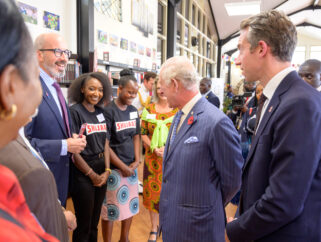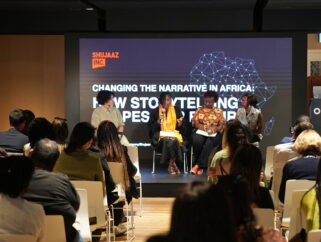Well Told Story’s Rejection Scale turns the art of persuasion into science [ARCHIVE]
- 28 Aug 2015
The GroundTruth research we do as part of every Shujaaz persuasion campaign helps us view the world through the eyes of our audience. When we triangulate this with the perspectives of adults and gate keepers to get a true sense of the challenges facing our audience of young people, the results are often amazing, forming the core of our persuasion strategies.
Of course it turns out young people usually have good and well-reasoned motives for behaving as they do – even though sometimes their choices make no sense to outsiders or the grown-ups around them.
The impediments to positive change in agriculture, governance or health are often invisible stigma or self-image that need to be addressed before bigger goals can be reached. Gaining a deep GroundTruth understanding of young people’s views and situations often leads us to redefine completely the challenges we are working to address, moving away from the obvious goals to tackle much less visible barriers.
We’ve developed the Rejection Scale as a way to visualise the persuasion journey society often needs to take before big important social changes begin to happen.
For example, encouraging young people to manage their fertility with contraceptives is a major challenge around the world that is often characterised as a problem of Knowledge Deficit:
“If only young people understood all the lifestyle, livelihood and love-life benefits of contraceptives, they would surely use them!”
Placing this view of the problem on a simplified “Adoption Scale” of contraceptive uptake it looks like most young people in Kenya are currently around Zero on a journey towards 100% Adoption.

But our GroundTruth research found that Knowledge Deficit isn’t the problem at all. Young Kenyans actually know a lot about contraceptives, what they do and where to get them… and they’ve combined this knowledge with lots of other (both accurate and inaccurate) contraceptive information to conclude they don’t want to use them.
For multiple good reasons of their own, many young Kenyans currently believe that contraceptives are suitable for people different from them – a little older, or more prosperous, in a proper relationship, more promiscuous, less moral – people generally at a different stage in their lives that may lie in the future, but not now. Others have tried but suffered side effects – or at least they’ve heard about this from trusted friends, the most important source of information for young people. Other youngsters we’ve met have been put off by health services. When we sent our young researchers undercover they were routinely patronised, sent home, shamed, even propositioned in clinics by the doctors and nurses they approached for help with contraception (see an upcoming blogpost on this study).
So it turns out that the journey to 100% use of contraceptives by many young Kenyans begins not at Zero as we might have thought, but actually somewhere closer to 100% Rejection.
![]()
This insight completely changes the scope and strategies of any persuasion campaign, and also how its effects and progress are measured.
A strand through all the Shujaaz Kenya mass media, supported by the Bill and Melinda Gates Foundation, is now addressing young Kenyans’ active Rejection of contraception. By subtly and consistently normalizing contraceptive use within a broader set of common youth identities and personas, and linking this with attainable, life-enhancing aspiration through the experiences of real life Positive Deviants, Shujaaz is undermining and debunking the exact arguments young people use to inform their Rejection (except for the behaviour of the clinics – that’s a hard one to dismiss).
The Rejection Scale is an important tool as we design this strategy and much of our other work: it helps us visualise and understand the highly complex persuasion challenges we’re tackling, and it later on it enables us to design measurement tools that track progress towards Adoption, even when the first milestone on that journey is often marked Zero.
Rob Burnet





